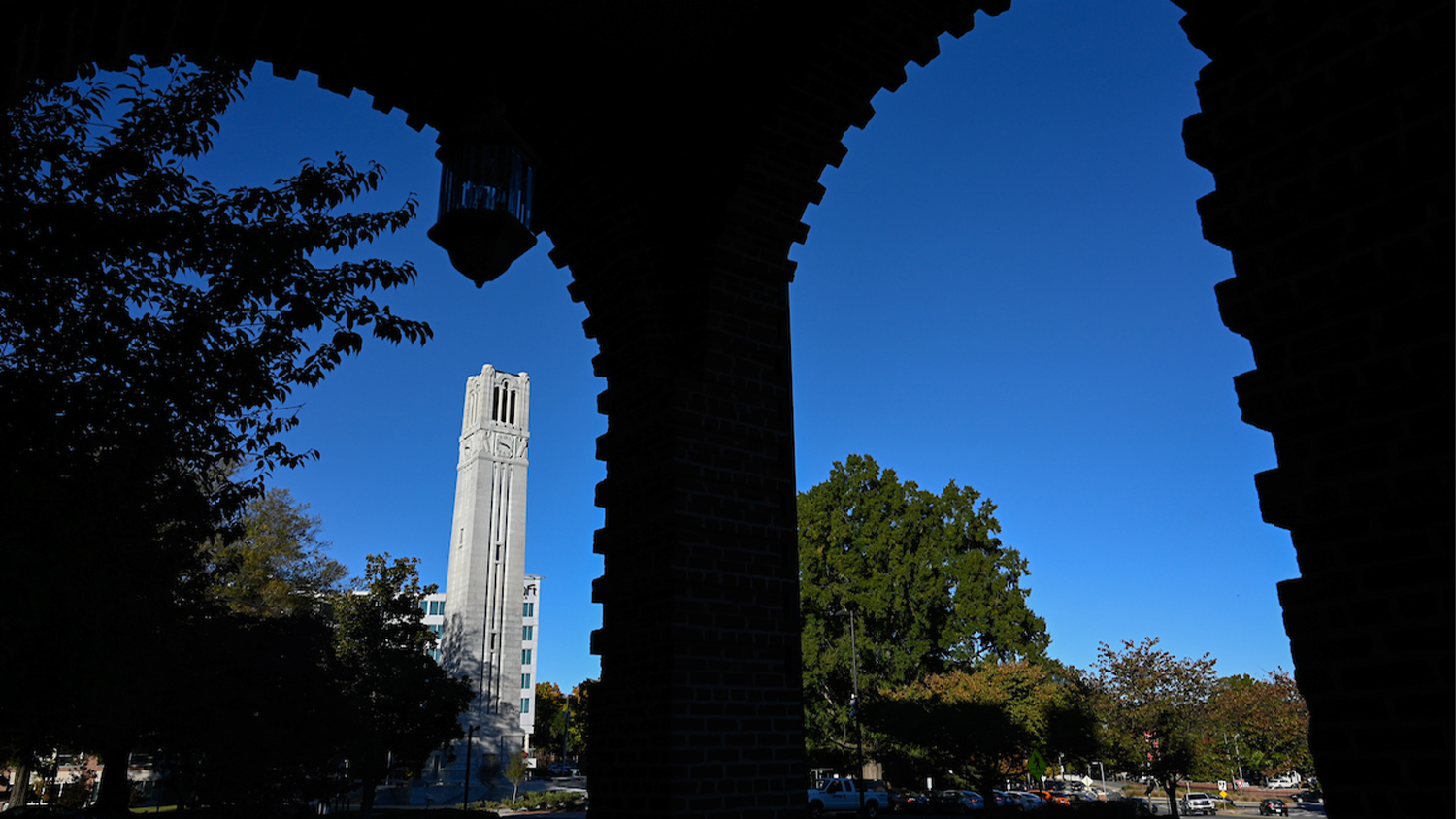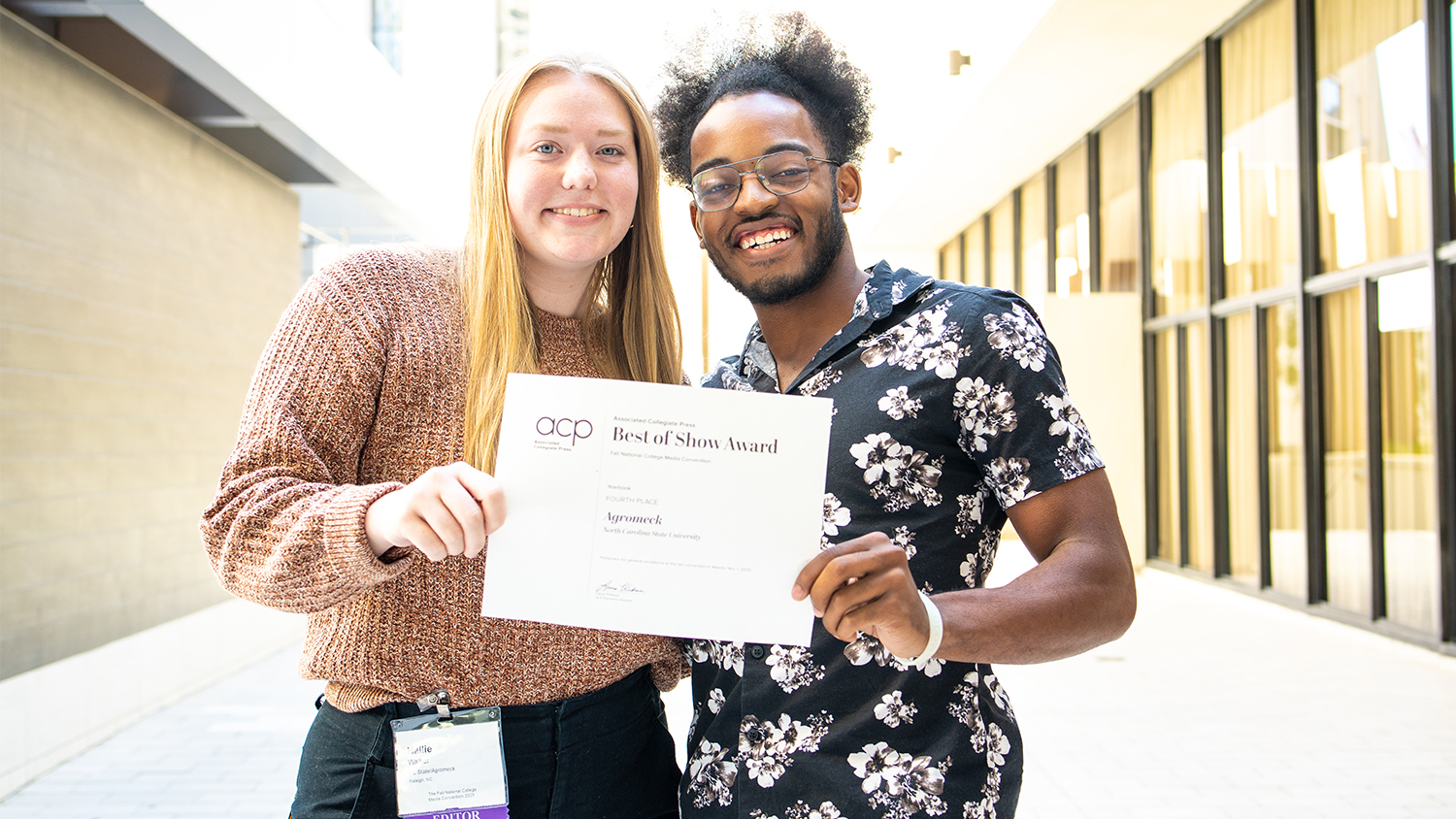Get to Know the Office of Undergraduate Courses, Curricula and Academic Standards
The Office of Undergraduate Courses, Curricula and Academic Standards provides oversight of the approval process for all undergraduate course and curricular offerings at NC State, among many other services.

By Caleb White, DASA Marketing Intern
The Office of Undergraduate Courses, Curricula and Academic Standards (OUCCAS) plays a vital role in helping faculty and staff navigate the process of undergraduate course and curricular development and approval at NC State. Additionally, the office helps students find the right courses for their chosen career path. To get a better understanding of what the OUCCAS does and why, we spoke with Li Marcus, the director of the department:
Tell us about the Office of Undergraduate Courses, Curricula and Academic Standards and its role at NC State?
At its core, the Office of Undergraduate Courses, Curricula and Academic Standards provides oversight of the approval process for all undergraduate course and curricular offerings at NC State. As a part of this effort, we support two university standing committees of faculty governance charged with review of undergraduate courses and curricula – the University Courses and Curricula Committee (UCCC) and the Council on Undergraduate Education (CUE). Together, these committees provide a comprehensive review of undergraduate curricula and the General Education Program (GEP) as well as recommendations regarding undergraduate curricular matters to the provost. We also collaborate extensively with offices, departments and colleges across campus to provide assistance, guidance, resources and training regarding these subjects and those related such as assessment, accreditation, program and course development and more. For example, we’re a part of an administrator team with Registration and Records and the Graduate School to manage the CourseLeaf system used at NC State for the university catalog as well as the Course and Curricular approval systems of CIM Courses and CIM Programs.

Can you give some specific examples of how the OUCCAS supports faculty, especially during the last year?
In the past year, we worked with our committee chairs to transition UCCC and CUE (as well as related meetings) to Zoom to ensure continuity of their work and the safety of attendees as well as increased accessibility for members and guests from all across the university to attend.
We’ve also been able to continually improve our existing online CIM Courses approval system as well as implementing its sibling program, CIM Programs, in the past year through collaboration with Registration and Records and the Graduate School, in addition to reimplementing the University Catalog the year prior. These implementations, improvements and refreshes have brought almost all items in the review process into the same transparent approval system and connected it with our SIS, which has also enabled our offices to work more closely and discuss and further align processes all to the benefit of the faculty and staff with whom we work.
Our website has also undergone a complete redesign in the past year, moving from being a catch-all location for a number of different forms, training and information to being focused on providing guidance and information regarding undergraduate curricular approval at NC State. This has enabled us to implement clearer, task-based navigation that can be more easily and clearly linked and shared as well as providing clear places for our continually-growing supply of help videos to live.
In what ways does the OUCCAS’s work impact students at NC State?
Writ large, our work with UCCC and CUE reflects a required component of the university’s accreditation. Meeting minutes and agendas, as well as CIM records, are used during our five-year review as well as our reaffirmation process to reflect how faculty at the university level own and review courses and curricula and (in some cases) how policies are implemented or changed on campus. Our office also writes portions of the narratives for these projects. We are all invested in keeping the degrees that our students are pursuing accredited!
Day to day, we provide guidance based on precedent and university, system, state and federal policy to our committees and clients across campus, which provides a foundation for discussions surrounding undergraduate education that affects students’ experiences in their classrooms and academic programs. This has taken the form of assisting with credit hour questions in course design or providing background research regarding the history of the General Education Program as a committee considered implementation of the new USDEI requirement, which takes effect for all undergraduate students matriculating in fall 2023.
We are also lucky enough to have student representatives that serve on our committees. These members provide important graduate, undergraduate and Student Senate perspectives to the faculty’s discussions and these members can (and have previously) brought items up for discussion with these groups as well.
Tell us about the review process for undergraduate courses. What does it entail and what is measured or assessed?
Until we have the time to make a version of “I’m just a bill” from Schoolhouse Rock, we have a handy page on the process here that includes a process workflow.
Essentially, once a faculty member has an idea, they develop their syllabus and then go into CIM to fill out their course action, which goes through departmental, college and university review before being implemented in our Student Information System (Peoplesoft/Mypack Portal) by our colleagues in Registration and Records. Each of these groups look at the action with different types and levels of expertise and perspective — the department will likely look at discipline-specific needs and language, the college may look at the place of the course among other college offerings or in a program of study, and the university will look at the clarity and application of policy-related best practices.
UCCC specifically looks at courses and curricula for adherence to policy and best practice — are the student learning outcomes clear and measurable? Are there any concerns of overlap among existing coursework that haven’t been addressed?
CUE looks at existing/new courses and asks whether the course’s student learning outcomes align with the objectives of the requested General Education Program category, and whether the measures listed as examples measure those outcomes.
If a course is cross-listed, it will go to both/all department and college steps involved, and if a course is dual-level (400/500) it will also go to the administrative board of the Graduate School before moving to R&R for implementation.
There’s a lot involved! See the next question for resources and training we provide to help anywhere along the way.
All of these groups work together to ensure that the idea comes to its best implementation on campus for faculty, students and staff.
Tell us about the various training courses offered by OUCCAS.
Training and guidance are peppered all around our new site (aiming to find you when you most need it), but Lexi Hergeth, the university program associate, continues to create and hone training opportunities every semester, often in collaboration with other campus partners.
- Annual synchronous training for members of CUE and UCCC, open to everyone
- Ad-hoc training for individuals or groups on the curricular process
- Ad-hoc training for individuals or groups for CIM for Courses and CIM for Programs
- Ad-hoc Contact/Credit Hour analysis, which is a great resource if you’re trying to figure out how the activities and story of your course fits into the contact/credit hour guidelines for campus
- Asynchronous videos for CourseLeaf software
Is there something you would like a module or resource for not on the site? Let us know at courses-curricula@ncsu.edu!
Is there anything particularly unique or different about NC State’s OUCCAS compared to other universities?
OUCCAS is positioned and operates regularly in a community of practice — our partnerships with faculty and administrative offices on campus are key to our development and operations. Our small team offers university-wide, undergraduate course and curricular assistance and information services through consistent and growing partnerships with offices such as the Provost’s Office, the Graduate School and Registration and Records as well as groups such as UCCC, CUE, and the Associate Deans of Academic Affairs. In this way, we are able and aim to include and account for all facets involved in the questions, innovations and issues that cross our desk.
Is there anything else you would like faculty and staff or students to know about OUCCAS and the work it does for NC State?
We’re humans and we’re here to help! Systems and processes can seem daunting or overwhelming, but we always like to answer questions, assist where we can, connect people to the resources that they need, and also receive feedback on the process so that we can improve. courses-curricula@ncsu.edu reaches our whole team and we’d love to hear from you.
For more information about the Office of Undergraduate Courses, Curricula, and Academic Standards, visit their website here.
- Categories:


